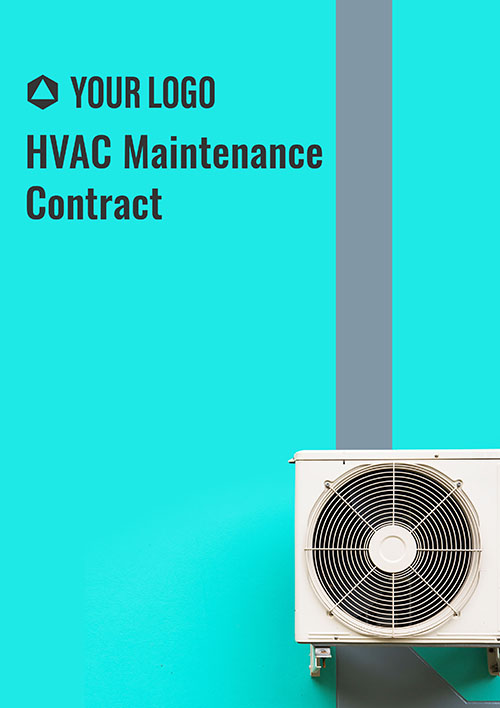Empty space
1x
2x
3x

Landscaping Contract
Empty space
1x
2x
3x
Prepared for:
[Client Name]
Prepared by:
[Landscaping Company]
Landscaping Contract
This Landscaping Contract (hereinafter referred to as the "Contract") is entered into and shall be effective as on [Date] (hereinafter referred to as the "Effective date")
By and Between
[Landscaping Company], (hereinafter referred to as the “Company”), residing at [Address] and;
[Client Name], (hereinafter referred to as the “Client”), with a principal place of business at [Address].
The Client and the Company are collectively referred to as the "Parties" and individually as "Party".
WHEREAS, the Company is engaged in the business of offering landscaping services conforming to the Client’s design and direction according to the terms and conditions herein and;
WHEREAS the Client desires for the Company to render landscaping services.
NOW, THEREFORE, In consideration of the mutual covenants and promises made by the parties hereto, both hereby agree as follows:
Terms and Conditions
Terms and Conditions
1. Location
1. Location
The property at which the Company shall perform such services is located at [Client address]. The Client warrants and represents that the Client is the owner of such property and has the authority to engage the Company for the landscaping services requested on the property.
2. Term
2. Term
The Company shall perform the Landscaping Services described herein once every [Mention time-period] for [Mention tenure].
3. Scope of Work
3. Scope of Work
The Company agrees that it shall perform the landscaping services described herein. In the event the Client changes the scope of work after making this Contract, the cost of services and/or materials may increase or decrease.
The Scope of Work is as follows:
Scope of work | Description |
[Work 1] | [Mention description] |
[Work 2] | [Mention description] |
[Work 3] | [Mention description] |
4. Compensation
4. Compensation
In consideration of the landscaping services, the Client shall pay the Company at the rate of $[0.00] per hour plus the cost of materials. All the payments and transactions shall take place in USD through [Payment mode]. As per the time frame fixed, the estimated cost for rendering such services is $[0.00]. The Company shall send an invoice to the Client once every [Mention time period] and the payment of such invoices shall be paid within [Number of days] working days. If invoices are not paid by the due date, the Client will have to pay a sum of $[00.00] against any unpaid balance from the due date of the invoice until the date of payment.
5. Client Responsibilities
5. Client Responsibilities
The Client shall be responsible for the following:
1. Ensure the Company is introduced to the boundaries of the property so that it does not encroach on any third party’s property.
2. Inform the Company about service lines which include (but not limited to) electrical, telephone, and gas lines.
3. Ensure the Company does not face any interference while rendering such services.
4. [Add more]
6. Company Responsibilities
6. Company Responsibilities
In performing the Landscaping Services, the Company shall be responsible for the following:
1. Obtain the necessary permits required to perform the landscaping services.
2. Inspect the materials to be purchased to perform such services.
3. Adhere to the pre-determined schedule.
4. Use quality equipment and materials.
5. Perform services in an efficient manner.
6. Clean the property premises after performing the landscaping services.
7. Relationship of Parties
7. Relationship of Parties
The Company, in the performance of this Contract, shall act in the capacity of an independent contractor and not as a partner, agent, or employee, of the Client.
8. Insurance
The Company shall maintain and declare a liability insurance coverage policy to the Client. This shall safeguard the employees of the Company from any death, bodily injury, or property damage. In addition, the insurance shall act as evidence, that all such coverages do exist in full force. If the insurance expires before the expiration of the Contract, the Contractor shall provide the new insurance handout which shall include the new coverage plan to the client within [Number of days] days from the date of expiration of the previous insurance.
9. Limitation of Liability
9. Limitation of Liability
Both Parties shall not be held liable for any indirect, consequential, incidental, or punitive damages arising out of the landscaping services or any loss of income that both Parties might incur. However, the Parties shall be held responsible for any death or personal injury, fraud, fraudulent misinterpretation, and negligence.
10. Termination
10. Termination
Parties may terminate this Contract if Either Party has breached the provisions of this Contract in any respect. A written notice to be served to the concerned Party at least [Number of Days] days prior to termination. If such notice is not given, the following rules shall be adhered to:
a. If the Client cancels, the Company shall be paid a sum of $[0.00].
b. If the Company cancels, the Client shall be paid a compensation of $[0.00].
Note: The sum shall be considered as compensation for the inconvenience caused.
11. Arbitration
In the event of any dispute arising in and out of this Contract between the Parties, it shall be resolved by arbitration. There shall be [Number of Arbitrators] arbitrators which shall be appointed by [Party Name]. The venue of arbitration shall be [Venue/Location of Arbitration] and the seat shall be [State]. The Arbitrators' decision shall be final and will be binding on both the Parties.
12. Display of Work
12. Display of Work
The Client hereby authorizes the Company to take photographs of the Client’s property mentioned herein, for the purpose of showcasing the Company's efficiency in rendering landscape services. The Company shall also hold the sole rights for any such photographs.
13. Indemnification
13. Indemnification
The Client agrees to indemnify, defend, and protect the Company from and against all lawsuits and costs of every kind pertaining to the landscaping services described herein; and/or any false information delivered by the Client pertaining to the Property; and/or failure to deliver relevant information by the Client.
14. Miscellaneous
14. Miscellaneous
1. Notice: Any all notices to the parties, physical or digital, shall be made to the respective parties through their certified mailing address.
2. Assignment: This Contract herein is binding upon the Parties outlined in the contract. The Contractor shall refrain from assigning this Contract, partially or as a whole, to any third party contractor or sub-contractor without the written consent of the client.
3. Governing Law: The Contract and all the terms contained herein shall be governed by and construed as per the laws of [State].
4. Severability: In the event that any provision in this Contract is held to be invalid, illegal, or unenforceable in any respect, such invalidity, illegality or unenforceability will not affect any other provisions of this Contract and all other provisions will remain in full force and effect.
5. Force Majeure: If either Party is unable to perform its obligations under the terms of this Contract because of acts of God, strikes, equipment or transmission failure or damage reasonably beyond its control, or other causes, the Parties shall not be held liable for such damages.
6. Amendments: No modification or waiver of the provisions of this Contract shall be valid or binding on either Party unless in writing and signed by both Parties.
7. Legal and Binding Contract: This Contract is legal and binding between the Parties as stated above. This Contract may be entered into and is legal and binding in the [State/Court/Region]. The Parties each represent that they have the authority to enter into this Contract.
8. Entire Contract: This Contract and other annexures, therefore, constitute the entire Contract between the Parties concerning the subject matter hereof and thus, supersedes all prior Contracts, purchases, understandings, and negotiations, written or phonated, between the Parties.
Empty space
1x
2x
3x
Acceptance & Signature
Acceptance & Signature
IN WITNESS WHEREOF, the undersigned Parties have duly executed the terms mentioned herein the Contract as of the aforementioned date.
[Landscaping Company]
[Client name]
Signature
Assign signer 1
Name
Assign signer 1
Date
Assign signer 1
Signature
Assign signer 2
Name
Assign signer 2
Date
Assign signer 2
Empty space
1x
2x
3x
Thank You
Thank You
Empty space
1x
2x
3x
DISCLAIMER: Revvsales, Inc is not a law firm. The content provided herein is for general information purposes only, and does not constitute legal advice. Revvsales, Inc and its partners make no representation or warranty of any kind, express or implied, regarding the accuracy, adequacy, validity, reliability, availability, or completeness of any information mentioned hereunder. The use or reliance of any information contained herein is for your personal use and solely at your own risk. You agree to fully release and indemnify Revvsales, Inc from any liability associated with the use of this content. You are advised to obtain independent legal advice before taking or refraining from any action on the basis of the content provided here.
DISCLAIMER: Revvsales, Inc is not a law firm. The content provided herein is for general information purposes only, and does not constitute legal advice. Revvsales, Inc and its partners make no representation or warranty of any kind, express or implied, regarding the accuracy, adequacy, validity, reliability, availability, or completeness of any information mentioned hereunder. The use or reliance of any information contained herein is for your personal use and solely at your own risk. You agree to fully release and indemnify Revvsales, Inc from any liability associated with the use of this content. You are advised to obtain independent legal advice before taking or refraining from any action on the basis of the content provided here.
















